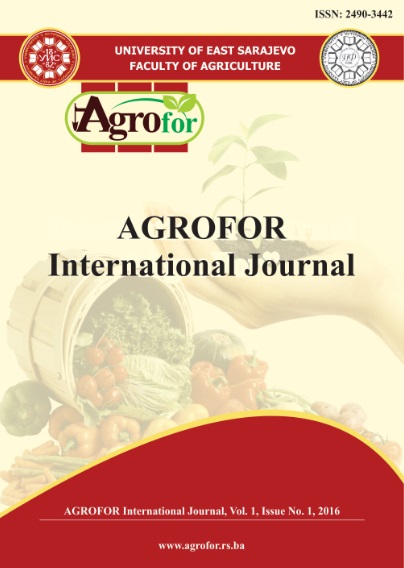AMMI VERSUS NONPARAMETRIC ANALYSIS FOR INVESTIGATION OF GE INTERACTION OF PLANT DISEASE EVALUATION
DOI:
https://doi.org/10.7251/AGRENG1601157SAbstract
In breeding for plant disease resistance programs, a large number of new improved
genotypes are tested over a range of test pathogens or environments and the
underlying statistics used to model this system may be rather complicated. Due to
ordinal nature of most measured traits of disease responses, some nonparametric
methods used for analyzing genotype × environment (GE) interaction in two
datasets for disease severity of gray leaf spot of maize (with ten genotypes planted
in 10 and 11 environments). Usually, the presence of the GE interaction effect
complicates the selection of the most favorable genotypes and there are several
statistical procedures available to analyze these dataset including a range of
univariate, nonparametric and multivariate procedures. Present analysis separated
nonparametric methods based on dynamic concept from those which are based on
the static type indicated that RS statistic following to S6, NP2, NP3 and RS
statistics were found to be useful in detecting the non-complicated phenotypic
stability in disease severity dataset. In complicated GE interaction, the ability of
AMMI stability parameters especially SPC1, SPCF, D1, DF, EV1, EVF and ASV
statistics were high in the detection of stability in complicated GE interaction. In
general, nonparametric methods are useful alternatives to parametric methods and
allow drawing valid conclusions with considerably better chances of detecting the
GE interaction in experiments of plant pathology. Also, in some cases the GE
interaction structure is too complex to be summarized by only one parameter and
so, it is essential to use multivariate statistical methods like AMMI.

